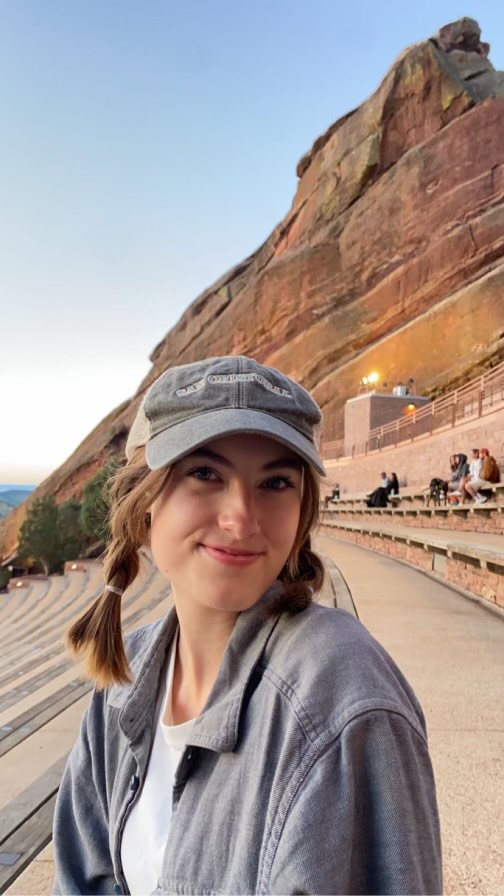Haley Bart is a rising third-year majoring in Theatre. She is working with Anya Richkind on her play tender of you too.
Tell me about your SURG research.
Bart: I am working as a new work dramaturg over the summer. I connected with this playwright Anya Richkind. I found a draft of her play tender of you too, which is based off of journal entries written by Frances Willard to Mary Bannister, her closest friend, when they were in their early twenties, late teens at the Northwestern Female College. It’s a really interesting play that parallels their relationship with these two contemporary characters, Tara and Allegra, who are high schoolers who become friends when they are cast as Frances and Mary in a historical play that they’re putting on. What really fascinated me about this play … is that both of these relationships exist outside of the binary of friendship and romance. Almost like they’re both romantic and platonic, but at the same time, it’s like a heightened relationship. It’s not half platonic, half romantic. It’s 100% of both of those things. I was just really excited about exploring that through a lens that isn’t interested in the binary. I think that women today would look at Frances and Mary and read the letters and be like, ‘Oh, they were gay.’ They didn’t describe themselves as gay and that wasn’t something they could do at the time that they were living. There’s a historian who talks about ‘lesbian-like.’ It’s a term that she coined where it’s honoring the fact that they wouldn’t describe themselves as lesbians, but lesbians today would. My research is trying to honor that from both sides. As a queer woman, I have certainly had relationships with other women that were not really romantic, but they were, but they were also friendships. It’s this weird gray area of what it means to have that kind of relationship with someone. I’m really hopeful that my work on this can help other women see themselves and their relationships in this show once it’s published.
What are you hoping to get out of this research?
Bart: Anya and I talked about our big goal with this is to be able to do a staged reading of a final version of the script at Northwestern in Winter Quarter of next year and actually see that staged and put in front of an audience. Anya mentioned to me that out of all her plays, this is the one that people message her about the most. She’s received dozens of emails from people all over the world, and the vast majority are young women who read this play and see themselves in Tara and Allegra and Frances and Mary. That to me shows how important it is to explore that relationship, because gay people have been around forever, and that sort of gets buried. I think a big thing with Frances and Mary is, ‘Well, they never said they were gay.’ A big thing for me is being able to bring that relationship to the forefront of people’s minds. I think it really helps queer people or people that are experiencing relationships that exist outside of a binary to feel less alone. Not only is there this contemporary relationship that’s fictional being shown to them, but there’s also a historical, real relationship that did happen that they can see themselves in and feel validated.
Meet the other SURG Recipients!
